A glass prism of refractive index 1.5 is immersed in water (refractive index 4/3). A light beam incident normally on the face AB is totally reflected to reach on the face BC if.
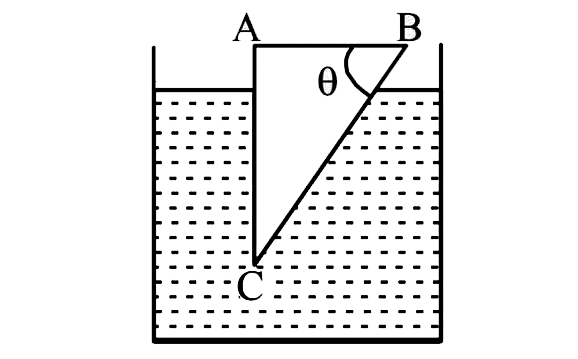
It is not possible
The correct Answer is:A
For TIR at
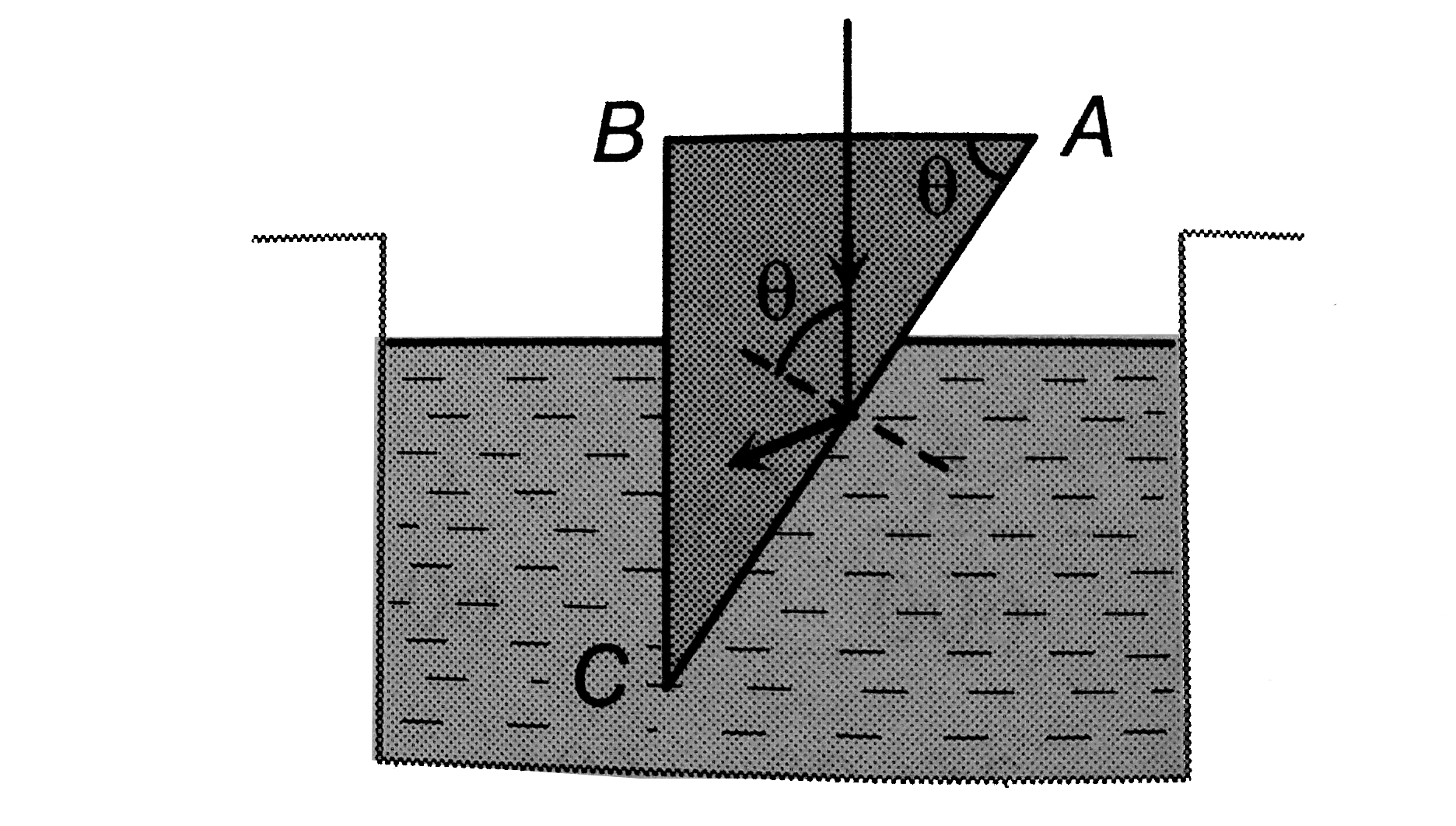
Topper's Solved these Questions
- GEOMETRICAL OPTICSBOOK - A2ZCHAPTER - GEOMETRICAL OPTICSEXERCISE - Section B - Assertion Reasoning
19 Videos
- GEOMETRICAL OPTICSBOOK - A2ZCHAPTER - GEOMETRICAL OPTICSEXERCISE - AIPMT/NEET Questions
95 Videos
- GEOMETRICAL OPTICSBOOK - A2ZCHAPTER - GEOMETRICAL OPTICSEXERCISE - Optical Instruments
55 Videos
- ELECTROMAGNETIC WAVES AND COMMUNICATION SYSTEM BOOK - A2ZCHAPTER - ELECTROMAGNETIC WAVES AND COMMUNICATION SYSTEM EXERCISE - Section D - Chapter End Test
30 Videos
- MAGNETISM AND MATTERBOOK - A2ZCHAPTER - MAGNETISM AND MATTEREXERCISE - Section D - Chapter End Test
30 Videos
Similar Questions
A glass prims ABC (refractive index 1.5) , immersed in water (refrective index 43). A ray of light is incident normally one face AB. If it is totally reflected at the face AC, then
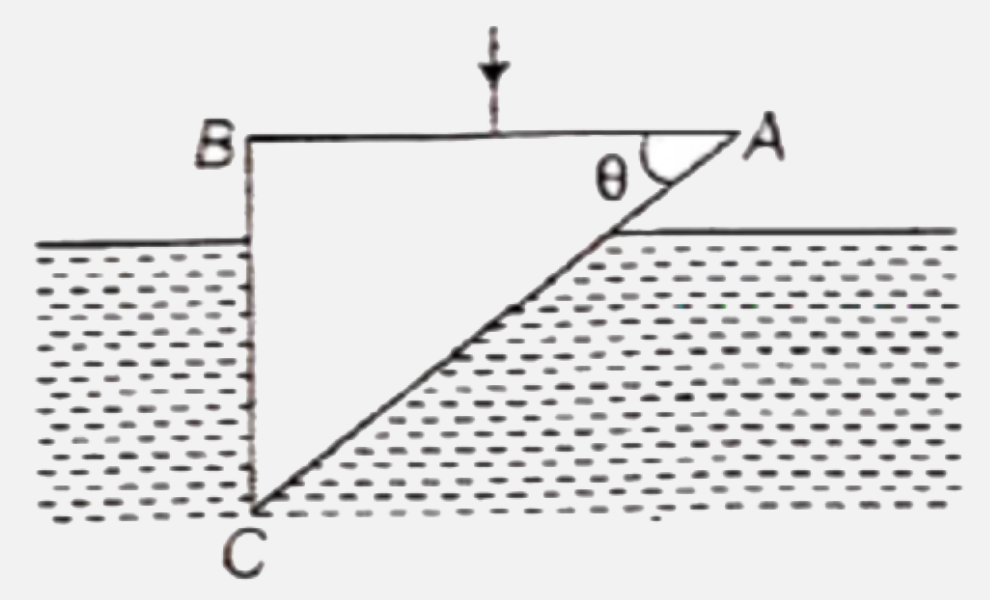
View SolutionAn equilateral glass prism of refractive index 1.5 is immersed in water. Find the angle of deviation produced when a ray of light is incident at 42∘ on one face of the prism.
(Refractive index of water = 1.33)
View Solution
Knowledge Check
A glass prism of refractive index 1.5 is immersed in water (refractive index 4/3). A light beam incident normally on the face AB is totally reflected to reach the face BC, Fig. if :
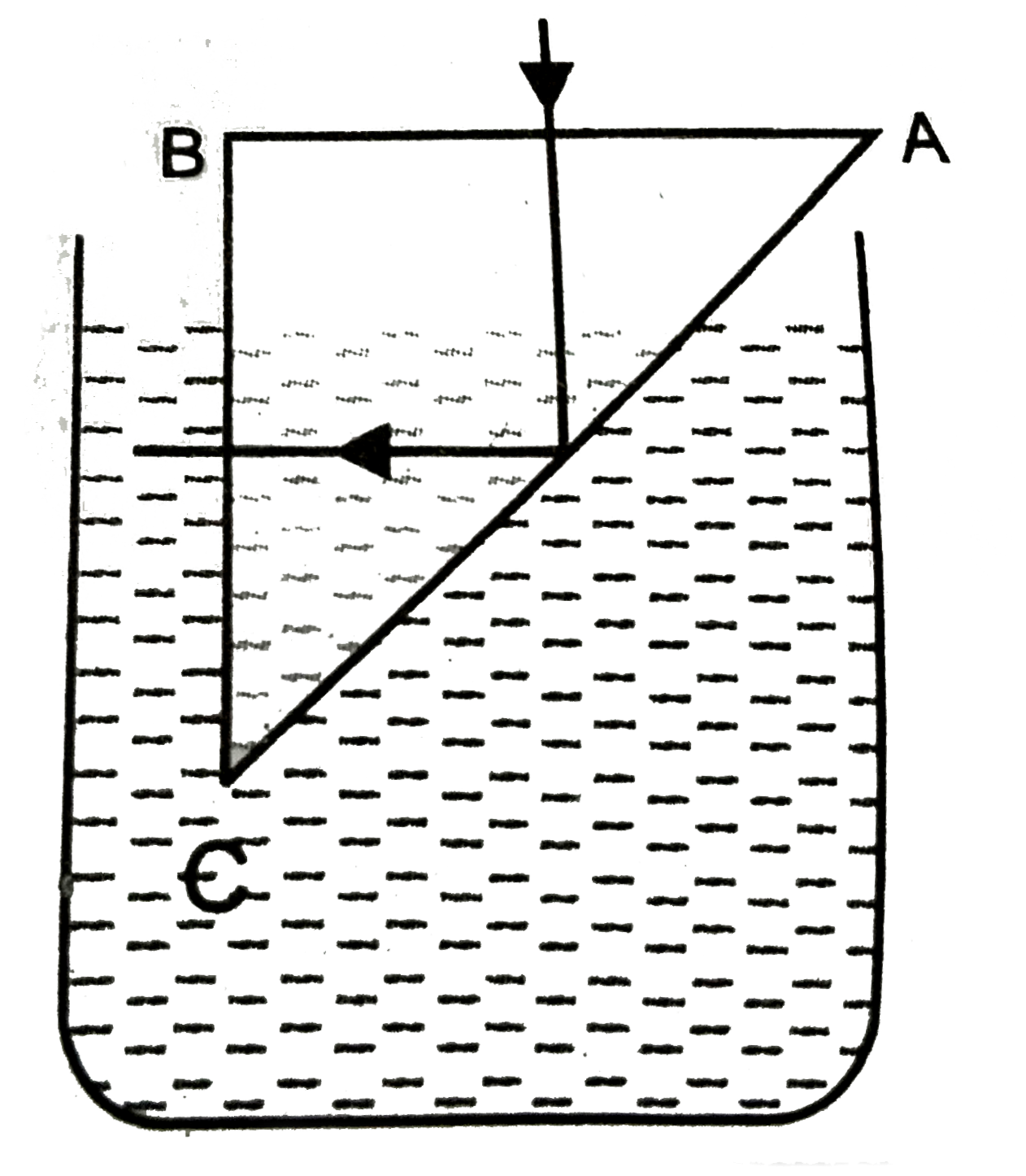 .AsinC=8/9BsinC=9/8CsinC=2/3DsinC=3/2
.AsinC=8/9BsinC=9/8CsinC=2/3DsinC=3/2A glass prism of refractive index 1.5 is immersed in water (refractive index 4/3) . A light beam normally on the face AB is totally reflected to reach on the face BC if
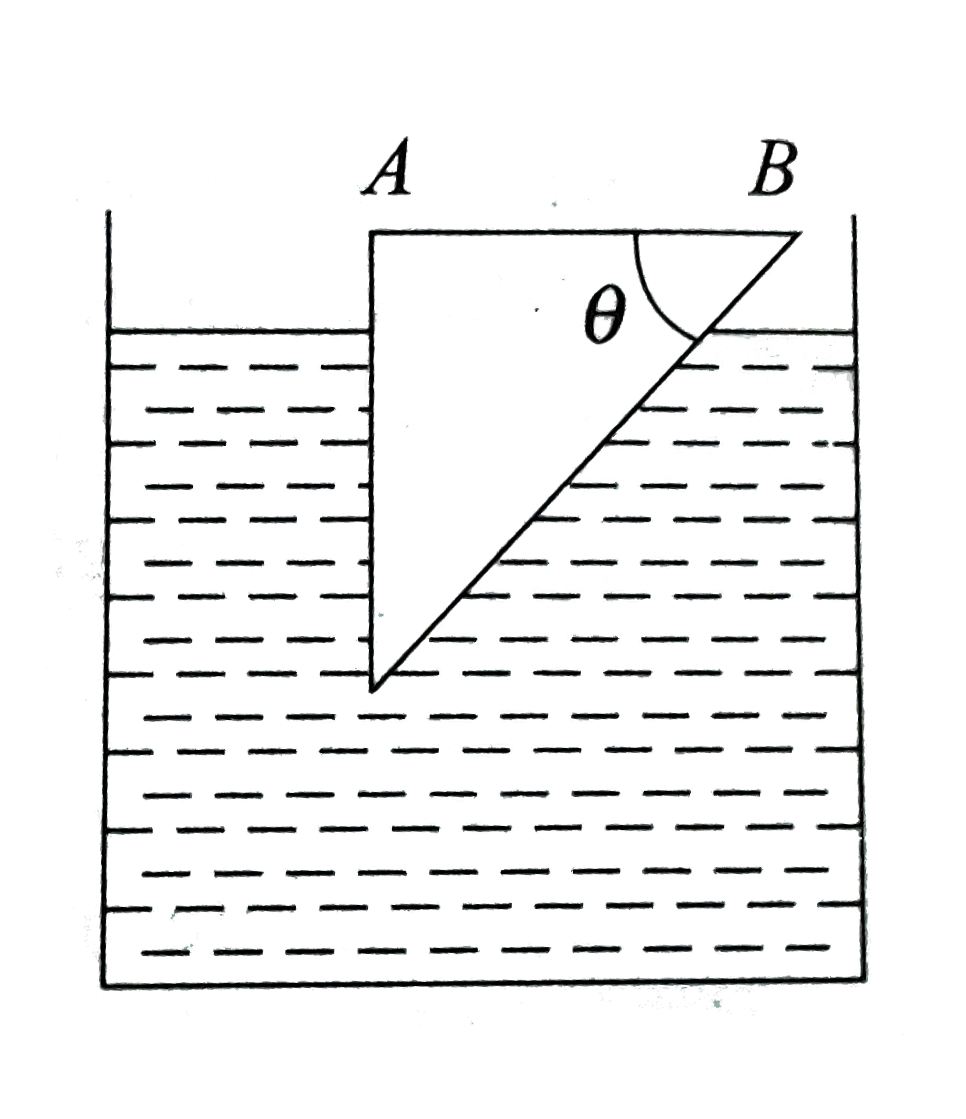 Asinθ≥89B23<sinθ≥<89Csinθ≤23Dsinθ≤89
Asinθ≥89B23<sinθ≥<89Csinθ≤23Dsinθ≤89Choose the most appropriate option.
A glass prism ABC (refractive index 1.5), immersed in water (refractive index 4/3). A ray of light is incidentally normally on face AB. If it is totally reflected at face AC, then
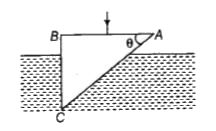 A40%B50%C65.6%D34.4%
A40%B50%C65.6%D34.4%
(a) Show using a proper diagram how unpolarised light can be linearly polarised by reflection from a transparent glass surface.
(b) The figure shows a ray of light falling normally on. the face AB of an equilateral glass prism having refractive index 3/2, placed A in water of refractive index 4/3. Will this ray suffer total internal reflection on striking the face AC? Justify your answer.
View SolutionA transparent cube of side d, made of a material of refractive index μ2 , is immersed in a liquid of refractive index μ1(μ1<μ2). . A ray is incident on the face AV at an angle θ (shown in the figure). Total internal refraction takes place at point E on the face BC. Then must satisfy:
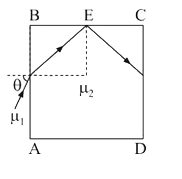
View SolutionA glass prism is immeresed in water as shown in the figure. When a beam of light incident is incident normally on the face ab, it is internally reflected at the face ad. If the refractive index of glass is 1.5 and that of water is 4/3, then
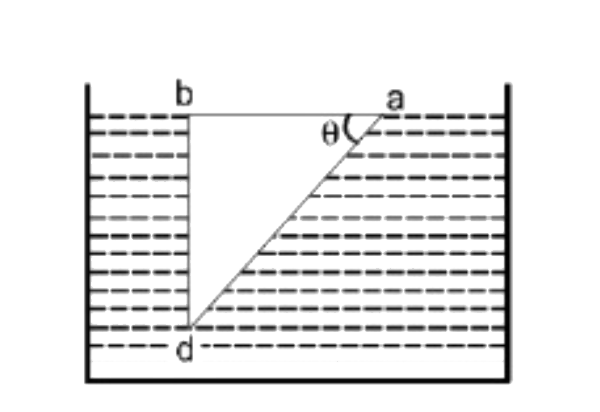
View SolutionA glass prism (μ=1.5) is dipped in water (μ=4/3) as shown in figure. A light ray is incident normally on the surface AB . It reaches the surface BC after totally reflected, if
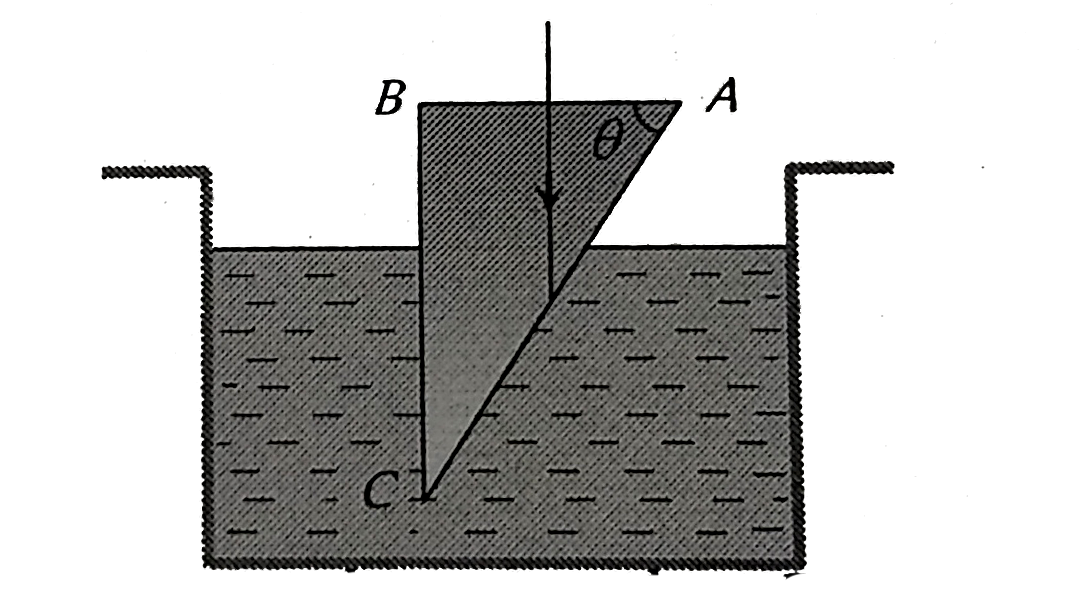
View SolutionA glass prism (μ=1.5) is dipped in water (μ=4/3) as shown in figure. A light ray is incident normally on the surface AB . It reaches the surface BC after totally reflected, if

View Solution
